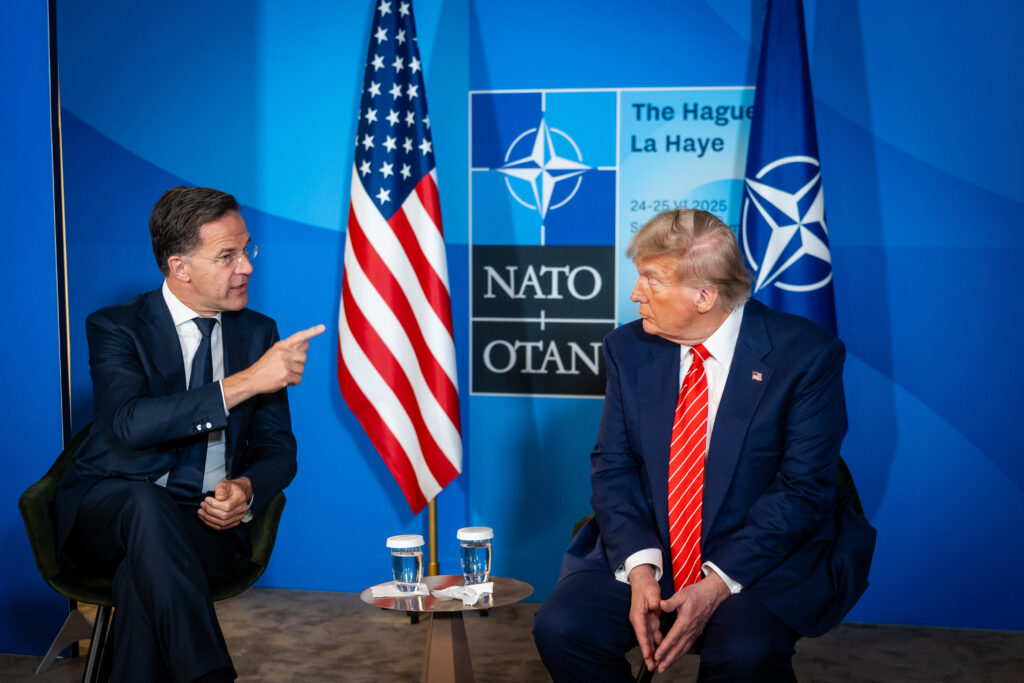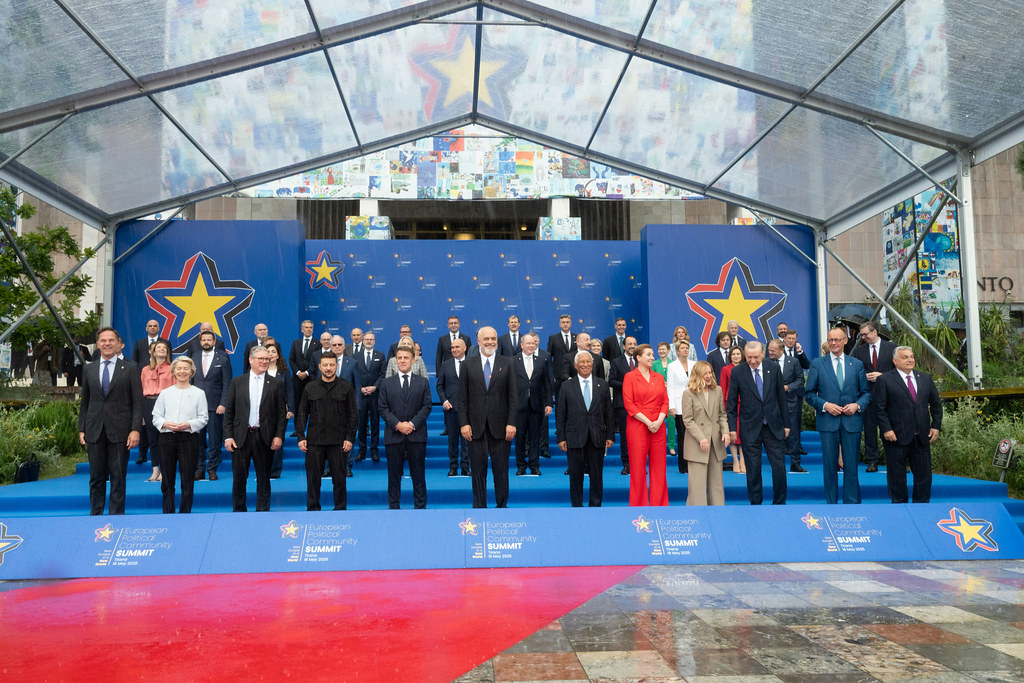
The 2025 NATO Summit was held on June 24–25 in The Hague, and it marked a pivotal moment for the Alliance.
A lot happened on June 24-25. Leaders agreed on the most ambitious defense plan in decades of raising collective military and security spending to 5% of member GDP by 2035, which is huge.
As the NATO summit in The Hague came to an end, most European leaders felt a sense of relief. Nothing big or unexpected went wrong, and even Trump appeared to be more friendly toward other NATO leaders.
So, what exactly unfolded? Here’s a closer look at the key takeaways.
Political Highlights Of the NATO Summit

There was a lot that happened at the political summit. Here are some of the key takeaways of this year’s NATO Summit.
- Big Increase in NATO Defence Spending
One of the biggest takeaways from the summit is NATO’s new goal: member countries should aim to spend 5% of their national budgets on defense within the next 10 years. This is a major increase from the current 2% target, a goal that 8 out of 32 NATO members still have not reached.
Out of the 5%, 3.5% must be spent directly on military needs like soldiers and weapons. The remaining 1.5% can be used for other defense-related areas, such as:
- Protecting important infrastructure
- Strengthening cybersecurity
- Preparing for emergencies
- Boosting innovation
- Improving the defense industry
Even though the full 5% includes flexible spending, reaching the 3.5% core defense target will still be hard for many countries, especially those that are only just meeting, or still under the 2% mark.
Every country will have to submit yearly plans showing how it will increase its spending step by step. NATO will review everyone’s progress in 2029.
- Trump and the Russia issue
There were already speculations that talking about Russia would be difficult. And, it happened. Most NATO countries, especially those near Russia, agree that Moscow could become a serious threat soon. In fact, Rutte has warned that Russia might attack NATO within the next five years.
Last year, NATO’s final statement clearly called out Russia for its “brutal war of aggression.”
But Trump has always been softer toward Russia. He does not really see it as an enemy, so it was unlikely he would support a statement that directly blamed Russia for the bloody war in Ukraine, which has now lasted more than three years.
So this year’s message only says that Russia is a “long-term threat to Euro-Atlantic security” and that NATO will keep supporting Ukraine. But it doesn’t directly blame or criticize Russia like it did before.
- Rutte’s Unusual Moment with Trump
NATO’s new Secretary General, Mark Rutte, was in an odd and surprising moment with U.S. President Donald Trump when he jokingly called him “daddy.”
Rutte had praised Trump in a private message for his strong actions in Iran, saying that “no American president in decades could have done” what Trump did. Trump proudly shared those words on his social media, and Rutte later said he was not embarrassed about it.
But during a joint appearance with Trump during the summit, things got even more unusual. When Trump compared the war between Israel and Iran to “two kids in a schoolyard having a fight,” he added, “And then daddy has to sometimes use strong language to stop them.”
Rutte responded by calling Trump “daddy,” which made headlines. When asked if he had gone too far with the compliments, Rutte said, “I think he deserves all the praise.”
Trump, standing beside Secretary of State Marco Rubio and Defense Secretary Pete Hegseth, both were smiling and found it all funny. He joked, “I think he likes me. If not… I’ll come back and hit him hard. But he said it with love: ‘Daddy, you’re my daddy,’” and laughed.
- Ukraine Support Still a Priority
One of NATO’s main goals is to keep supporting Ukraine. However, this year’s summit message was not as strong as last year’s. The idea of Ukraine joining NATO was left out completely, even though NATO’s Secretary General Mark Rutte says Ukraine is still on an “irreversible path” to membership.
There were still some good signs for Ukraine. In a press conference, Trump said the U.S. might be open to selling Patriot air defense systems to Ukraine, something Ukraine has been asking for, especially now that Russia has increased its air attacks.
This kind of support could be organized by NATO, the Ukrainian Defense Contact Group. It would not only help Ukraine defend itself, but also help Europe rebuild its own defense strength, especially since Ukraine could start exporting its own military equipment, like drones.
- Trump Calls Out Spain Over Low Defence Spending
Ukraine’s President Zelensky had a tough meeting with Donald Trump earlier this year, and European leaders have been careful not to upset him. But Spain’s Prime Minister, Pedro Sánchez, did not think so.
Sánchez arrived at the NATO summit already dealing with political problems at home. Spain spends just 1.24% of its economic output on defense, one of the lowest in NATO. While most countries are being pushed to spend more, Sánchez insisted that 2.1% would be enough. He told reporters that this amount fits well with Spain’s social welfare system.
During the group photo, Sánchez stayed distant from other leaders and appeared to avoid Trump. But Trump noticed anyway, and he didn’t hold back.
“It’s terrible what they’ve done,” Trump said, accusing Spain of trying to get a “free ride” in NATO. He added, “We’re negotiating a trade deal with Spain, but we’re going to make them pay twice.”
Conclusion
To sum up this NATO 2025 summary, the summit set the stage for major shifts in military spending, Ukraine support, and political dynamics within the alliance. There were no dramatic events, and key developments took place just like the 5% defense goal. Also, the rising tensions with Russia made headlines across global defense news. The road ahead will test how well these promises turn into real action.
FAQs
Which country is NATO 2025 held in?
From 24 to 25 June 2025, the Netherlands will host the NATO Summit in the World Forum in The Hague.
Who is the current NATO Secretary-General?
The former Prime Minister of the Netherlands, Mark Rutte, is the NATO Secretary-General.

